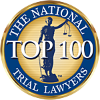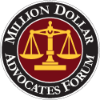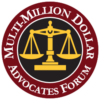Disaster Relief Fraud Lawyers
Have you observed disaster relief funding fraud? It’s time to act.
Have you observed disaster relief funding fraud? It’s time to act.
With 20 “billion-dollar weather/climate disaster events” occurring throughout the country — including drought, flooding, severe storm, cyclone, winter storm, and wildfire events — the United States spent approximately $141 billion on weather-related disaster relief in 2021.
After a disaster, the Federal Emergency Management Agency (FEMA), Red Cross, insurance companies, and other agencies try to move quickly to help victims obtain food, water, shelter, and medical assistance. Fraudsters sometimes take advantage of the post-disaster chaos to try to get more than their share of government money.
Unscrupulous practices may include:
These types of behavior can form the basis of a False Claims Act (FCA) claim against the businesses. Call us at 1-888-292-8852 if you believe you have seen this type of disaster relief fraud, and we can help you determine if you have a whistleblower case.
Disaster relief fraud against the government hurts us all. Governmental catastrophe funding is meant to help those in need, not line the pockets of immoral, opportunistic businesses. Whistleblowers who speak out against these businesses and their practices are serving the public good. The following are a few examples of disaster relief funding fraud.
In addition to the devastating loss of human life and strain on the medical community and institutions throughout the country, the COVID-19 pandemic revealed an unfortunate and disgraceful tendency towards greed of some individuals and organizations. As the government set aside funds to help and care for U.S. citizens hurt by the coronavirus pandemic, unethical people and organizations implemented illegal schemes to apply for and obtain these funds.
For example:
“Throughout the pandemic, we have seen trusted medical professionals orchestrate and carry out egregious crimes against theory patients all for financial gain,” said Assistant Director Luis Quesada of the FBI’s Criminal Investigative Division.
In a press release, the DOJ stated that it “needs the public’s assistance in remaining vigilant and reporting suspected fraudulent activity.” Statements such as this indicate that the government may be inclined to intervene in whistleblower/qui tam cases.
If you have witnessed anyone taking part in any COVID-19 fraud schemes, contact the Carolina Whistleblower Attorneys immediately. We can help you decide whether to bring a whistleblower qui tam lawsuit to report the fraud, and we will try to help you obtain a reward for your efforts.
Fraud was rampant after Hurricane Katrina – often focused on government disaster relief funds. Brave whistleblowers came forward and helped the government right some of the wrongs that occurred after the hurricane.
Following the 2018 Camp and Carr fires in California, individuals defrauded the government by making false claims when applying for FEMA assistance. One such case involved a whistleblower who informed federal law enforcement that an individual applied for FEMA benefits and falsely claimed that his primary residence had been destroyed in the Camp Fire.3 The citizen who called in the tip provided information alleging that the accused individual was not a victim of the fire, and it was later discovered that he had cashed two FEMA checks he received.
With hundreds of billions of disaster relief dollars up for grabs after major weather events, pandemics, and other disasters, the environment is often ripe for fraud against the government. Courageous whistleblowers report most of the scams that are eventually exposed, but the vast majority of fraud against the government is believed to go undetected.
If you suspect disaster relief fraud against the government, let’s talk. We are here to help you determine — confidentially and discreetly — if you can and should move forward with a whistleblower/qui tam claim. We want to see misused or ill-gotten disaster relief funds returned to the government. And we want to see you rewarded for your efforts.
We also appreciate the struggle you may be facing. That is why we have a You-First Policy in place which allows us to try to protect and help you, regardless of your involvement. We have years of experience helping whistleblowers and a process in place that is based on the lessons we have learned and the results we have achieved.1
Contact us or call 1-888-292-8852
If we decide to take your case and you don’t get a reward for reporting fraud, you owe us nothing.2
“Bill has the ability to ‘think outside the box’…which makes him extremely effective as an advocate for his clients.” 1 — Attorney who previously worked with Bill






If you’re wondering if it’s a good idea to speak with a whistleblower lawyer about what you know, let us set the record straight.
"*" indicates required fields